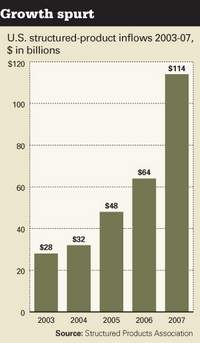by Diana B. Henriques
International Herald Tribune
Regulators of the nation's commodity markets will demand more information about investors to determine whether they are evading market limits on speculation and artificially driving up world food prices.
The regulatory agency, the Commodity Futures Trading Commission, also plans to initiate talks with bank regulators to ensure that adequate credit is available for the farm economy.
Finally, in an unusual departure from the secrecy that usually cloaks its enforcement actions, the commission will confirm that it is investigating the price spike that hit the cotton futures market in late February, a step demanded by cotton industry executives at a commission hearing on April 22.
The commodity futures markets play a key role in establishing worldwide prices for wheat, corn, soybeans and other foodstuffs, as well as energy products like crude oil and natural gas.
But in recent years, these markets have also become an attractive haven for investors seeking both profits from rising prices and protection against inflation and a withering dollar. As a result, billions of dollars have poured into the commodity futures market — from pension funds, endowments and a host of other institutional investors — through the new conduit of commodity index funds.
Billions more have come in from investment banks that are hedging the risk of complex bets, called swaps, that these same investors have made in the unregulated international swaps market, which dwarfs the regulated markets supervised by the CFTC
The commission has come under fire, most recently at a hearing on May 20 before the Senate Committee on Homeland Security and Governmental Affairs, for not doing enough to monitor the impact of these investors on markets that have such influence on family budgets nationwide.
Specifically, the commission will start requiring more information about index funds and, more significantly, about the clients on the other side of the unregulated swaps deals that are being hedged on the regulated futures exchanges.
The swaps market has traditionally be seen as off limits for U.S. commodity regulators, but the commission clearly is responding to congressional concern that investors may be using swaps dealers to evade rules that limit the size of their speculative role in regulated markets.
The commission is also putting the brakes on granting waivers that have exempted some commodity index funds from speculative limits, and is formally dropping proposed rule changes that would have extended a blanket exemption to all index funds.
In recent years, more than a dozen commodity index fund companies have been granted individual waivers, after successfully arguing that they were using the futures markets exclusively to hedge their obligations to the people who have invested in their index funds. But the commission now intends to "be cautious and guarded before granting additional exemptions in the area," according to the draft proposal.
The full article can be accessed by clicking here.
Tuesday, June 3, 2008
Subscribe to:
Post Comments (Atom)



No comments:
Post a Comment